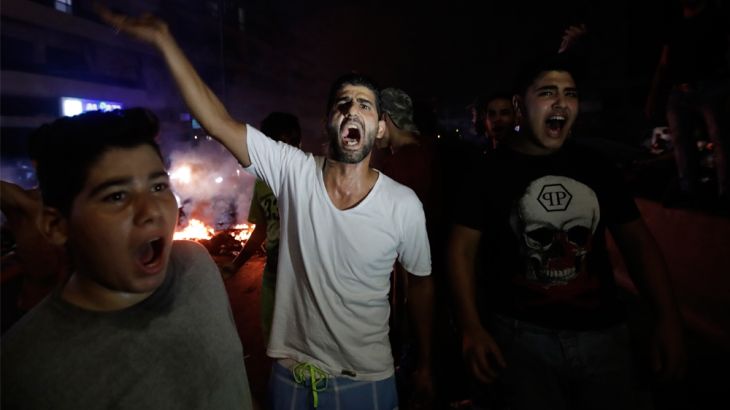
What is the solution to Lebanon’s economic and political crisis?
Protesters are calling for their leaders to resign citing high unemployment, electricity shortages and corruption.
Outraged, defiant and united behind a demand for political change.
Lebanese people from all religious and political backgrounds are calling for the prime minister, president and other leaders to resign.
Keep reading
list of 4 itemsShip that caused deadly Baltimore Key bridge collapse towed to port
‘Why should we vote?’ India’s jute workers blame politicians for woes
California farmworkers cheer new housing in town scarred by mass shooting
They say they want a revolution and many are criticising their own political leaders – something unprecedented in a country divided by sectarianism.
The largest protests in years were sparked by tax reforms that included charging to use the social media service WhatsApp.
The proposed taxes were quickly scrapped but there are other, longstanding grievances, including high unemployment, constant electricity shortages, poor infrastructure and corruption.
The protests are a challenge to the unity government and Prime Minister Saad Hariri.
He blames parties in his coalition for obstructing reforms required to unlock $11bn in aid pledged by international donors.
Are there hopes for meaningful political and economic change?
Presenter: Nastasya Tay
Guests:
Maha Yahya – director, Carnegie Middle East Center
Rana Khoury – political activist
Sami Nader – economist and director, Levant Institute For Strategic Affairs